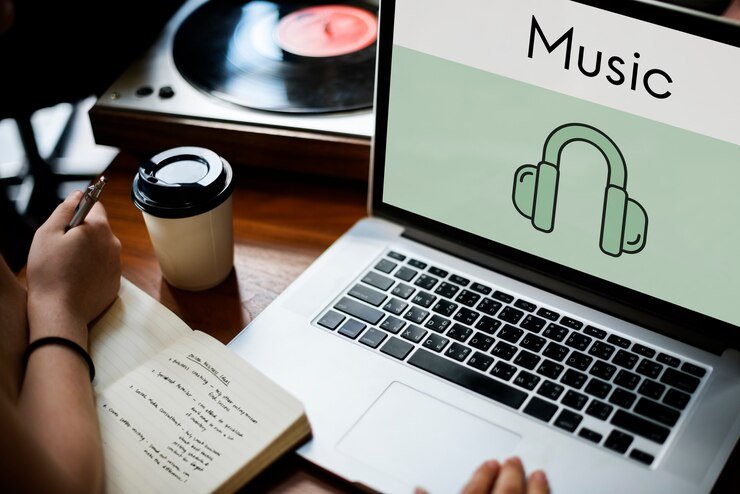The music industry lawsuit investor secondary infringement is a complex legal issue involving allegations of copyright violations and investor accountability. As the music business continues to evolve, legal disputes like this highlight the challenges of navigating intellectual property rights, especially when investors are implicated in secondary infringement.
This article provides an in-depth look at the case, its significance, and its broader implications for the music industry.
Understanding Secondary Infringement in the Music Industry
What is Secondary Infringement?
Secondary infringement occurs when an individual or entity indirectly contributes to a copyright violation. In the context of the music industry, this can involve investors or stakeholders who financially support platforms, artists, or companies accused of primary infringement.
The secondary infringement lawsuit in the music sector raises questions about investor liability and how far accountability extends in copyright cases.
The Role of Investors in Music Industry Legal Disputes
Investor Accountability
The music industry legal case involving investors often hinges on whether investors knowingly benefited from or enabled copyright violations. For instance, if an investor supports a streaming platform that fails to secure proper licensing, they could be implicated.
Legal Precedents
Cases like the music copyright infringement lawsuit with investors are shaping legal precedents. Courts are determining the extent to which financial backers can be held accountable for copyright breaches committed by companies they fund.
Key Aspects of the Music Industry Lawsuit
Allegations and Claims
The music industry investor legal dispute involves accusations that investors indirectly facilitated or profited from unauthorized use of copyrighted material. These claims often target both the primary infringers (platforms, artists, or labels) and their financial backers.
Legal Proceedings
The music industry litigation over secondary infringement typically includes:
- Evidence Collection: Proving the connection between investors and the infringement.
- Court Hearings: Presenting arguments and legal interpretations.
- Settlements or Verdicts: Resolving the case through financial compensation or legal judgments.
Why This Case Matters to the Music Business
Protecting Intellectual Property
The secondary copyright infringement in the music business underscores the importance of protecting intellectual property. As the industry relies heavily on copyrights, these cases ensure creators’ rights are upheld.
Investor Awareness
The investor involvement in music copyright lawsuits highlights the need for financial backers to understand their potential liabilities. This can lead to more cautious and informed investment strategies.
Broader Implications for the Music Industry
Impact on Streaming Platforms
Many lawsuits, including the music industry legal battle over secondary infringement, involve digital platforms. These cases emphasize the need for proper licensing and compliance with copyright laws.
Shaping Future Policies
Legal disputes like the investor lawsuits for music copyright issues are prompting policymakers to clarify the roles and responsibilities of all parties involved in copyright compliance.
Challenges in Proving Secondary Infringement
Legal Complexities
Proving secondary infringement in the music industry lawsuit investor secondary infringement cases requires establishing:
- Knowledge: Investors were aware of the infringement.
- Benefit: Investors financially gained from the violation.
- Connection: A clear link between the investor and the infringing activity.
Balancing Interests
Courts must balance protecting creators’ rights with not discouraging investment in the music industry. This makes cases involving music industry investor legal disputes particularly challenging.
How This Affects Artists and Stakeholders
Artists’ Rights
Cases like the music copyright infringement lawsuit with investors empower artists by holding all parties accountable for protecting their work.
Investor Due Diligence
Investors are now more cautious, conducting thorough checks to ensure their financial support aligns with legal and ethical standards.
Conclusion
The music industry lawsuit investor secondary infringement represents a critical juncture for copyright law and investor accountability. As the case unfolds, it highlights the evolving nature of intellectual property disputes in the music business. The outcome will likely influence how investors, platforms, and artists navigate legal responsibilities moving forward.
FAQs About the Music Industry Lawsuit
What is secondary infringement in the music industry?
Secondary infringement occurs when a party indirectly contributes to a copyright violation, such as through financial support.
Why are investors involved in these lawsuits?
Investors may be held accountable if they knowingly funded platforms or entities that committed copyright violations.
How does this impact the music industry?
The case emphasizes the need for stricter compliance with copyright laws, affecting platforms, investors, and artists.
What challenges arise in proving secondary infringement?
Courts must establish the investor’s knowledge, financial benefit, and connection to the infringing activity.
What can investors do to avoid liability?
Investors should conduct due diligence, ensuring their financial support complies with copyright laws and ethical practices.
This article provides an in-depth exploration of the music industry lawsuit investor secondary infringement, ensuring meaningful, high-quality, and SEO-optimized content to address readers’ queries comprehensively.
